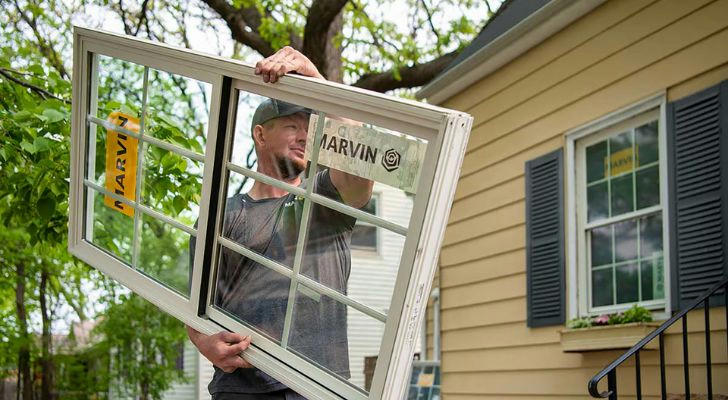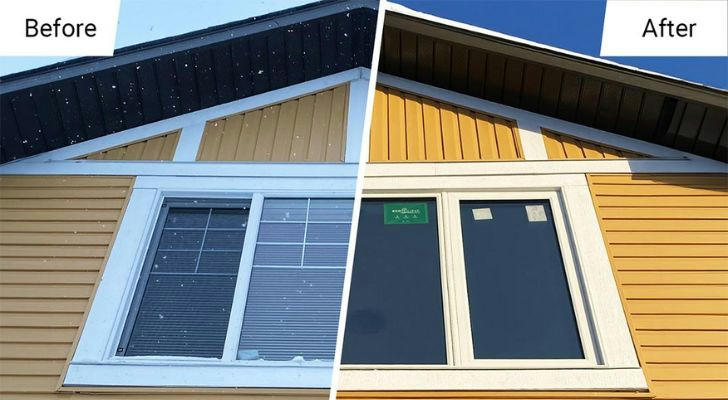What Do You Need to Know About Replacing Your Windows?
Replacing your home’s windows might not be the most exciting project on your list, but it’s one of the smartest upgrades you can make. From improving energy efficiency and indoor comfort to boosting property value, new windows offer real, long-term benefits. But before you start calling contractors, it’s important to understand what’s involved and how to make the best decisions for your home and budget.

Why Window Replacement Matters
Windows play a bigger role in your home’s performance than many homeowners realize. Old or poorly sealed windows can cause:
- Drafts that make rooms uncomfortable
- Higher energy bills due to heat loss or gain
- Noise from outside traffic or neighbors
- Mold or water damage from leaks
Replacing aging windows with modern, high-efficiency models helps seal your home, control temperature, and reduce your utility costs—often by 10% to 25%, according to the U.S. Department of Energy.
Signs It’s Time to Replace Your Windows
Not sure whether you need repairs or full replacement? Watch for these clear warning signs:
- Persistent drafts or air leaks
- Condensation or fog between panes, which signals seal failure
- Windows that stick, won’t lock, or are hard to open
- Cracked glass or rotting window frames
- Rising energy bills with no other explanation
If you notice two or more of these issues, a full replacement may be more cost-effective than continued repairs.
Choosing the Right Window Type and Material
There’s no one-size-fits-all solution when it comes to windows. Your local climate, budget, and home’s architecture all affect your decision. Here are some of the most common options:
Frame Materials
- Vinyl – Affordable, low-maintenance, and energy-efficient
- Wood – Classic look, natural insulator, but higher maintenance
- Aluminum – Strong and slim-profile, but less efficient in cold climates
- Fiberglass – Durable, energy-efficient, and performs well in all seasons
Window Styles
- Double-hung – Most common, both sashes move for airflow
- Casement – Hinged on the side and open outward for full ventilation
- Sliding – Glide horizontally; good for wide openings
- Picture – Fixed panes that don’t open; great for large views
- Bay/Bow – Extend outward for added light and space
Choosing ENERGY STAR®-rated windows ensures you meet federal energy efficiency standards and may qualify for rebates or tax incentives.
Understanding the Replacement Process
The window replacement process is more straightforward than many expect. Here's what typically happens:
Initial Consultation
A contractor assesses your existing windows, discusses needs, and provides a quote.Measurements and Ordering
Precise measurements are taken to custom-build your new windows.Old Window Removal
Installers remove old windows carefully, inspect openings for damage, and make repairs if needed.New Window Installation
New frames are insulated, sealed, and fastened properly to prevent leaks and improve performance.Finishing Touches and Cleanup
Trim is reinstalled or replaced, and work areas are cleaned. The contractor performs a quality check to ensure proper operation.
Most standard homes can be fully completed in 1–3 days, depending on the number of windows.
Budgeting and Cost Factors
Window replacement is a significant investment, but it pays off in performance and resale value. Here are a few key cost factors:
- Material – Vinyl is usually the most budget-friendly; wood and fiberglass cost more
- Window size and style – Custom shapes or large sizes increase price
- Labor – Installation complexity, home access, and regional labor rates affect cost
- Glass type – Double-pane, triple-pane, or low-E glass adds to efficiency—and price
On average, homeowners spend between $500 to $1,200 per window, including installation. Many contractors offer financing or bundle deals for full-home projects.
Working with the Right Contractor
A successful window replacement depends on the quality of the installer. Here’s what to look for:
- Proper licensing and insurance
- Positive reviews and customer testimonials
- Certifications from window manufacturers
- Written warranty for materials and labor
It’s smart to get quotes from at least two to three contractors to compare services and prices. Don’t just go with the lowest offer—experience and reputation matter.

Final Takeaway
New windows do more than enhance your home’s appearance—they improve energy savings, comfort, and protection. Whether you're upgrading for performance or aesthetics, knowing what to expect and who to trust makes the process smoother and more rewarding.
Start with a professional assessment, ask the right questions, and choose materials that fit both your climate and lifestyle. With careful planning, window replacement is a valuable investment that pays off for years to come.
